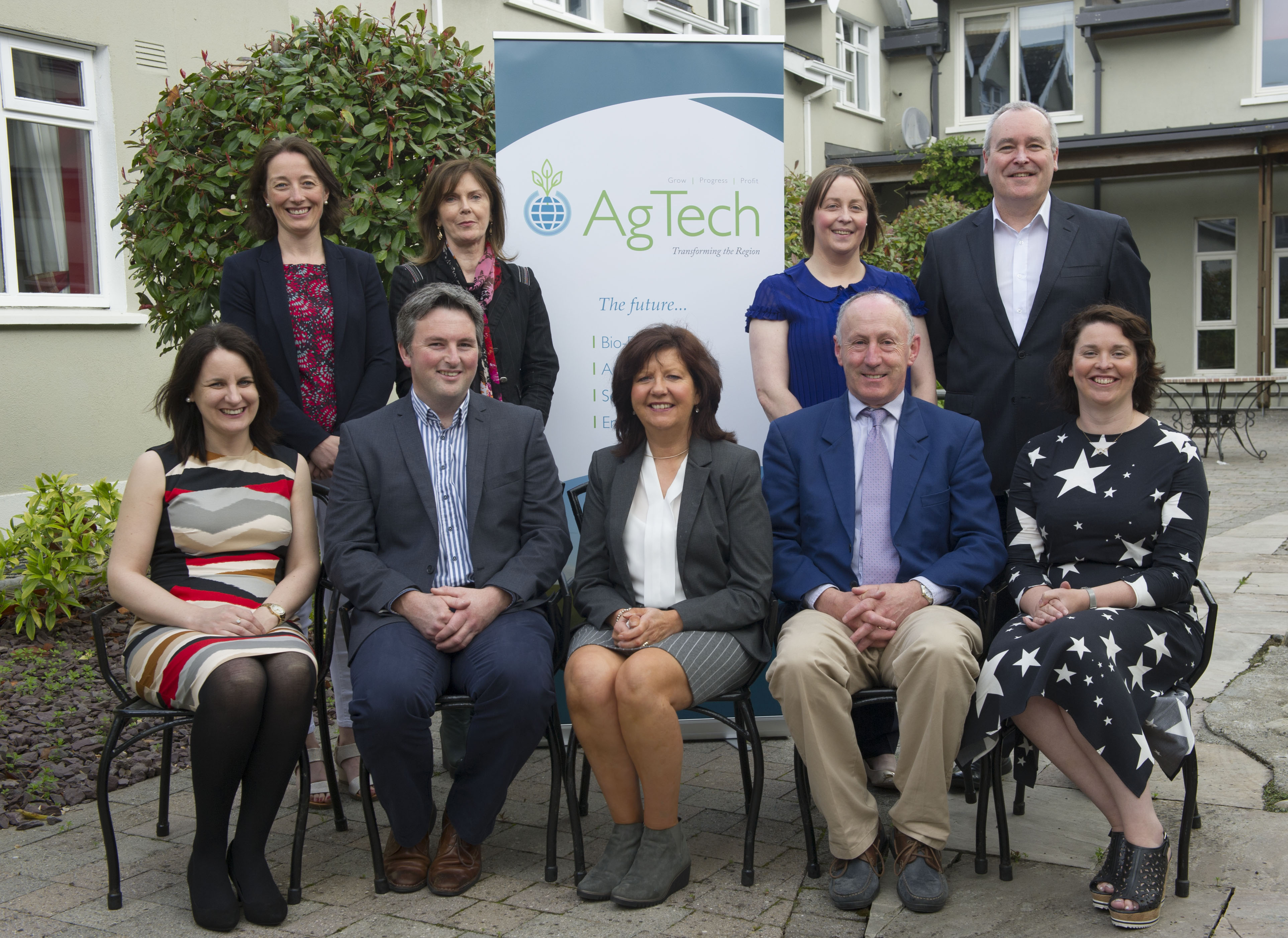AgTech Symposium in the South East highlights major strengths and opportunities where Agriculture and Technology collide!

Pictured at stakeholders meeting to plan Agritech 2017 were: seated, Catherine Hennessy, LEO Kilkenny, James Maloney, Enterprise Ireland, Rita Guinan, Head of Enterprise, LEO Tipperary, Donal Mullane, Teagasc, Brid Kirby, LEO Waterford; standing, Hazel Williams, TSSG, Attracta Lyons, Tipperary County Council, Sarah Byrne, LEO Carlow, Derek Blackweir, Questum/LIT)
The Local Enterprise Offices of the South East Region, including Tipperary, Kilkenny, Carlow, Wexford and Waterford, coordinated a forward thinking AgTech Symposium held in Thurles on Thursday. The inaugural Agricultural Technology initiative has been funded under the Action Plan for Jobs LEO Competitive Funds. Other key stakeholders involved in the event include Enterprise Ireland, Teagasc, The Department of Agriculture, Institutes of Technology, Agriforvalour and TSSG to mention but a few.
A large number of attendees at the conference included farmers, engineers, AgTechcompanies, investors, entrepreneurs and those with an interest in emerging technologies for agriculture. The aim of the symposium is to grow, progress and increase profitability with AgTech across the region.
The conference heard from farmers who sought new technologies which enabled them to produce more while reducing the effect on their land. Farmers told their story how they pioneered new business models to capture more of the value which they grow. These were the types of farmers who would never be satisfied that their business has been optimised and continually try to maximise performance within the confines of the land which they farm.
Barry Caslin from Teagasc said “Industry has to become smarter through the use of technology to add value along our food supply chains. The farmers leading the way in adopting the new technologies will ultimately accelerate the movement that transforms the global agri-food system into one which will efficiently feed nine billion people by 2050”.
Enterprise Ireland representatives commented “Sometimes we forget the large technological advancements and new innovations which farmers have adopted over time. Farming has always been evolutionary in nature and will continue to be in the future. Today, the smartphone is probably the most important tool on the farm. Once you have tasted the power of the smartphone, you are very unlikely to go back and who knows where future advances will lead us”
The technology is already here to geo-reference each field, layer in satellite and other data systems such as biomass indices to determine yields. These new technologies will radically transform how information is transferred to growers on a field by field level.
Given the speed at which technology is advancing, it is important for farmers to choose systems that would not be dated in 15 years’ time. A clear message from the symposium was that the farm will perform well when farmers show an openness and willingness to adopt the new technologies available to them to make the farm more efficient and profitable.
The biggest constraint on change is the status quo. Opportunities in bio-economy, sensors and genetic engineering were discussed during the symposium workshops. The main message was that the biggest driver of change are farmers who understands why they are farming and has a vision of what they are seeking to achieve from their business. It is these farmers who are prepared to stand out who will show the path to a more prosperous future. They will set the standards that others will, ultimately, aspire to and have to meet to retain their licence to operate.
Rita Guinan, Head of Enterprise, Tipperary and Lead Co-Ordinator of the AgTech Symposium said “Advanced ICT is being developed and implemented at every stage of the food chain, from the primary producer on the farm, through to the processor and retailer. Growth in global population and changing diets in emerging countries are projected to bring about a 70 per cent increase in global demand for food over the next 40 years. The Government’s Action Plan for Jobs identified the potential of the Agri-Food and Ag-Tech Sectors as key drivers of economic recovery and job creation in Ireland and I’m pleased to say that this symposium has successfully explored how the potential of AgTech in particular, can be maximised for the region. This symposium is very much the first step which has provided an insight into the sheer breadth of the AgTech sector and its potential for the region. The Local Enterprise Offices will support new start-ups and business expansions to progress AgTech opportunities and the resultant job creation in this sector across the country.”

Pictured at Agritech 2017 symposium in Horse and Jockey were L-R: Ethan Cleary, IFA, Fabien Peyaud, Herdwatch, Joe McGrath, CE, Tipperary County Council, Sinead Carr, Director of Services, Tipperary County Council, Jerry Moloney, Enterprise Ireland, Patrick Barrett, Department of Agriculture.
